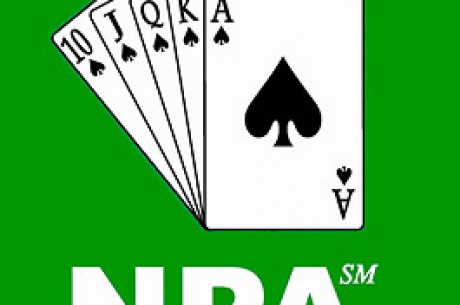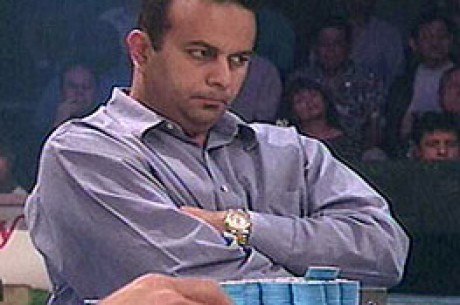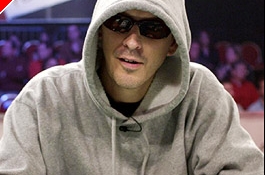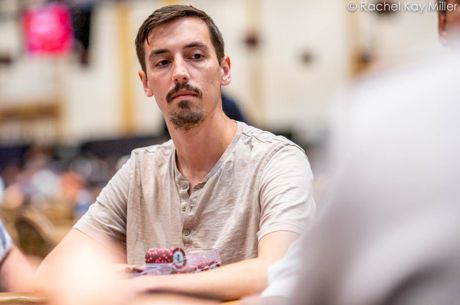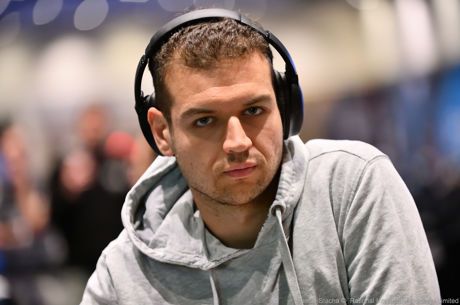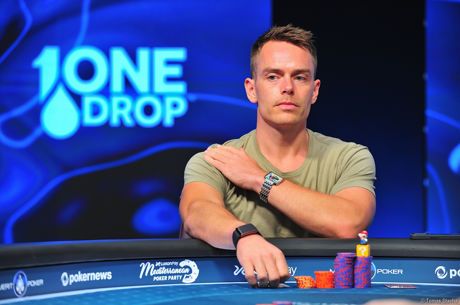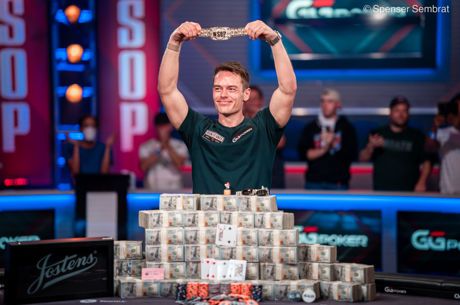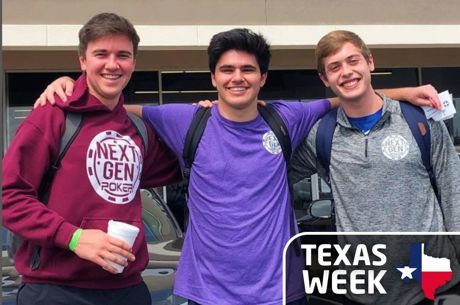The Poker Professor: Interview with Howard Lederer
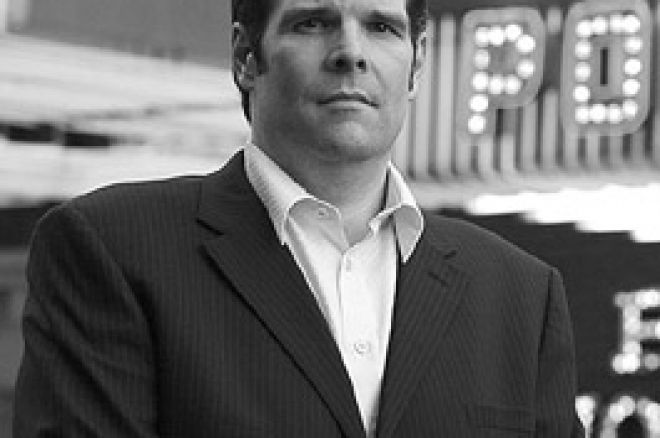
Howard Lederer is one busy guy. In addition to being a world-class poker player, Howard is one of the founders, and currently the President of Tiltware, the marketing and software company for Full Tilt Poker.
Never too busy to sit down with a member of the media, Howard and I recently sat down to discuss the state of poker, the state of his game, and the time he didn't make it in to the $10,000 main event of the WSOP.
John Caldwell: How involved are you, and the other players in the day-to-day decisions of what goes on at Full Tilt?
Howard Lederer: Well, I am the President of Tiltware. So, I work with Ray (Ray Bitar, CEO of Tiltware) on all the major day-to-day decision making with respect to software, and marketing. We do not own the operator.
JC: I have heard you talk about all the things you have going on outside of poker. I assume being the President of Tiltware is the most demanding.
HL: Yes. That is the big commitment. I certainly have the DVDs, and some TV commentary here and there, but I wouldn't consider that terribly distracting. Trying to run a software company takes a lot of energy.
JC: Do you feel that it has affected your play?
HL: Oh it has. 100%. I don't play at my best right now. I do the best I can when I play, which is quite a bit, but only in tournaments. I don't play sidegames. I have too much respect for the great, great players that play in the big side games for me to think that I can compete with them when I have so many other things on my plate.
Since I've been President of Tiltware, I'd guess I've won two tournaments. I've had a lot of fun in the big ones, but I am not satisfied with those results. I would like to do better. I can still play some pretty good poker when I put my mind to it, it's just that I don't have as much time as I would like to do so.
JC: When you are in the tournament playing, can you turn the distractions off?
HL: As we start to get more into the tournament, I get more and more focused. I think one of the things that does hurt me is that very early in the tournament, when the blinds are really small, or if I'm in a small- to medium-sized buy-in tournament, I probably still have business stuff in my head. As the blinds go up, the stack gets bigger, and you can start to smell the final table, that becomes all that matters.
The problem, of course is that if I don't have the focus in the early stages of the tournament, I don't get to that point as often as I should.
JC: What do you think are the one or two most pressing needs facing professional players, from top pros like yourself, all the way down to a guy that makes his living at a local casino?
HL: There is a very strong need for a players association. It would be good for the sport at all levels. Obviously, I have an interest in this sport from the business side too. I don't think it's in the long-term interest of the game, and therefore in the interest of the networks, or the sponsors to have a weak player side to the equation. Strong, healthy leagues, and sports have strong healthy players associations.
Right now, I think the players are being very short sighted, and they are leaving an enormous amount of sponsorship money on the table.
JC: How does that change?
HL: Well, it is changing. The top players are starting to insist, and say things like "Hey, if I can wear a logo, then I'll come play. If I can't, then I won't come play". And this has come down to the fact that there are finally more events, and more TV opportunities in the year than the single player can possibly do. So, these top players are finally able to start making these decisions, which then of course means that the events will have to start to compete for the participation of the players. I think that will lead to sponsorship. It's a beautiful model - the player gets sponsored for the buy-in, or some portion of the buy-in. It doesn't cost the TV people, or the TV sponsors any money. In fact, I would argue that having strong player representation by sponsors with sponsor logos in the shows will actually help TV. When sponsors get involved in a sport from the player side, and they get exposure in that sport via player logos, they are much more likely to sponsor events, they are much more like to buy 30 second spots. It aligns everyone's interests. But, as long as organizers, or TV say, "Oh, players can't wear logos", and the only compelling reason is because they can say no, which is really where they are at now. There's not really any reason to say no. Everyone loses in this scenario.
JC: Any player organizations that you have seen out there so far that you think could be the solution?
HL: I haven't seen it. I have not seen the organization out there yet that I feel is compelling enough, or has the right backing, or the right person at the helm, or the right energy to get this done. That isn't any knock on the people who have attempted this so far. It's just that it is going to take a special person, or people that really get it completely right and have all the right interests in mind - also, people with the right connections on the business side. This needs people that can bring these two sides together in a healthy way. I think this may be one of the hardest sports ever to pull this off because - Number one, who is a professional poker player? Number two - the very nature of poker players - they are fiercely independent, and they have a bit of a 'lone wolf' mentality, and it is not in their nature to be part of associations, and maybe make some short-term sacrifices for the greater good. Those are things that just don't come naturally for poker players.
JC: I have heard you say how important family is to success in poker. How does this 'lone wolf' philosophy fit in with the need for balance in life with a family. Are these two statements contra to each other?
HL: I don't think it's contra at all. You can talk about lone wolf all you want. You are a lone wolf as a poker player, you are out there, and you are fighting for yourself, and your family - and that's the key. That's why I think family is important. Having other people that you are playing for is important. But, that doesn't prevent you from being self-centered in the poker world itself. You are making your own way in the poker world, providing for yourself. But, when you are providing for yourself and others, then it makes you more responsible. You make better decisions, better bankroll decisions, and better game choices.
JC: Any young players who you think have a lot of game?
HL: I have been impressed by a number of young players. A young guy who has really impressed me is Joe Cassidy. Joe is young, and full of talent. Another guy is a guy we just signed, John D'Agostino, who before his 22nd birthday has been on TV three times. Another guy is Erik Sagstrom (Erik123), who is a very talented player. We're talking about guys that are world-class at an age where it's just not right, and we have internet poker to thank for that.
That being said, you go down to Bellagio, and look in at that $2,000/$4,000 game, it's the same faces. The internet will only get you so far. These guys have demonstrated tremendous talent, and they have a very bright future. But there is a little bit of hardening that has to go on, and that takes time. The internet doesn't get you to that next level. Guys like D'Agostino, and Cassidy are going to be working their ways up through the games. They are at that level, where they can beat up on the $400/800, and the $500/1,000 games, and as they gain experience at that level, in five or ten years, I think the face of that big game at Bellagio will change a lot.
JC: The WSOP had grown so massively. Talk about your first WSOP, and what that experience was like.
HL: The first time I went to the WSOP, I think there were 138 players, and I didn't get in. That was back in the days when, to get in to that thing, you had to show up with $10,000, or you had to win a single table. They didn't have supers, or online satellites all year like they do now. I had a $3,000 budget to get in, and I didn't make it. That was 1986, and I got in to the event in 1987 on my second or third try. I finished fifth, and I may have been the youngest, or the second youngest to make the final table. There might have been a player or two in the last couple years who was younger, I was 22 at the time.
I started playing in New York when I was 18, and losing almost every day. So, I already had some seasoning. I was as young and experienced as you could be at 21 or 22 ....back then. These days, you have so much more access to games, and hands, and table hours, that it's just a different story. I know how good I was for my age I was back then, and how bad I am compared to the great 21 year olds of today. You know a couple of these guys are going to be better than we thought possible.
JC: How much do you play online?
HL: I play about 10 hours a week. It's been tough over the last month (WSOP), but the pros who represent the site actually play on it. And, we are available about 10-12 hours a week chatting, and playing on the site.
JC: Do you think Online Poker will become legal in the US?
HL: You mean explicitly legal (smiles)? Not in the current political climate. Not right now. I think it could, and should happen. Maybe the U.K. will lead the way there. Obviously, they are going to make an attempt at doing that, and if they can show the political powers that be, and maybe there is a transfer of power here then maybe it's possible. That being said, there are rulings out there that say these laws apply strictly to sports betting, and you could argue that this would extend to all online gaming. But, even if you include all online gaming, there is another argument that poker wouldn't fall under that. Poker is a game of skill, gaming is chance. I think core politicians may not see the difference, but I think many judges get it. Also, I think even socially, and morally no matter where you stand, you can see that rolling dice and pulling slot machines are different activities than playing poker.
You can play, and chat with Howard at Full Tilt. Also, check out his DVD series at secretsofholdem.com

